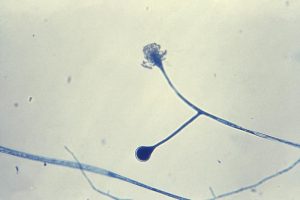Speed is essential in treating deadly mucormycosis fungal infections, but a quick diagnosis is difficult because no routine blood test exists.
 A new grant will fund research to develop a diagnosis for this rare fungal infection that strikes about 2,000 people in the U.S. every year and kills more than half of them. Ashraf S. Ibrahim, PhD, a Los Angeles Biomedical Research Institute (LA BioMed) lead investigator and founder of the LA BioMed spinoff, Vitalex Biosciences, will be conducting the research to develop a rapid method for diagnosing mucormycosis. “We founded Vitalex to translate the technologies developed in the laboratory at LA BioMed to target diseases, such as mucormycosis, and multidrug resistant bacteria, such as Acinetobacter baumannii,” Dr. Ibrahim said. “Our focus at Vitalex is to develop rapid diagnostics against mucormycosis and immunotherapies against mucormycosis and Acinetobacter infections. This grant to Vitalex and LA BioMed will help us develop diagnostics for mucormycosis so that physicians can move more quickly to try to halt the progression of this deadly infection.” Mucormycosis is a rare infection caused by fungi typically found in the soil and in decaying organic matter, including leaves and rotten wood. The infections are more common among people with compromised immune systems, including those with uncontrolled diabetes and cancer. Those who do survive are usually severely disfigured by the surgical removal of tissue to halt the progression of the infection. |
| The research will be funded by a $151,000 grant from the National Institute of Allergy and Infectious Diseases of the National Institutes of Health under Award Number R41AI115907. |

